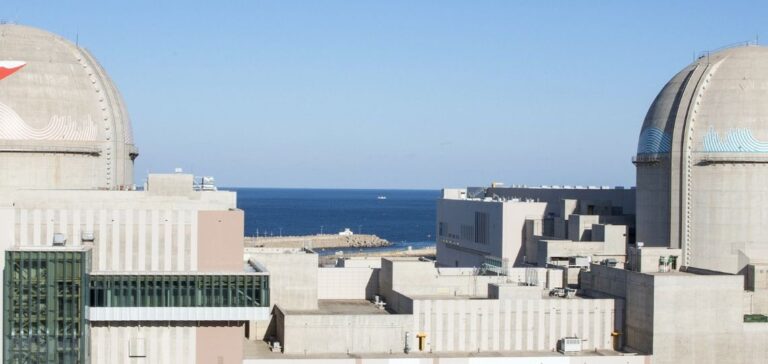The project to build two nuclear reactors in the Czech Republic by South Korean company Korea Hydro & Nuclear Power (KHNP) is now on hold. The European Commission has formally asked the Czech government to delay signing the contract, initially scheduled for May 7, pending clarification over possible public subsidies received by KHNP. The intervention comes as EDF, also a bidder and unsuccessful in the tender, has filed a complaint with the Czech courts.
Brussels investigates potential distortions of competition
The letter sent by European Commissioner for Industrial Strategy Stéphane Séjourné refers to the Foreign Subsidies Regulation, in force since July 2023. This legislation aims to ensure fairness in public procurement involving companies supported by non-EU governments. The Commission suspects KHNP may have benefited from public support from South Korea, potentially distorting competition to the detriment of European rivals.
Commission spokesperson Thomas Regnier stated that Czech energy company CEZ had not responded to the Commission’s request for information, despite this being mandatory under EU procedures. The state-owned group, which is overseeing the tender, opposed the EU intervention. Its Chief Executive Officer Daniel Benes said that “the content of the letter must be rejected by the Czech Republic.”
A strategic contract for Czech energy independence
The contract, valued at an estimated CZK200bn ($8.55bn), covers the construction of two new reactors at the Dukovany site in the south of the country. KHNP plans to begin construction in 2029, with commissioning set for 2036. The project is part of the country’s long-term strategy to maintain nuclear output, which currently accounts for about 40% of its electricity generation.
The two existing nuclear power plants, Temelin and Dukovany, are currently operated by CEZ. With the new units, the Czech Republic aims to secure its energy supply while reducing dependence on imported hydrocarbons.
Growing legal and diplomatic pressure
The complaint filed by Électricité de France (EDF) with Czech courts has already resulted in a judicial suspension of the contract signing as of May 6. The legal action comes amid intensifying tensions around energy tenders in Europe, marked by increasing competition from Chinese and South Korean firms.
Similar proceedings have already been launched by the Commission in other sectors, notably in wind power in Greece and Romania, in response to the entry of foreign operators. The Czech case highlights the growing complexity of balancing industrial strategy, energy sovereignty, and compliance with single market rules.






















